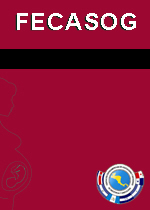Editorial
Authors
DOI:
https://doi.org/10.37980/im.journal.revcog.20222120Keywords:
editorialAbstract
The news of the removal of more than 500 articles from a prestigious journal as fraudulent is just a glimpse of a major problem threatening the scientific community. A lone researcher discovered in Materials Today: Proceedings, a journal that works with papers from research presented at international conferences, the consequences of inadequate oversight. The journal promises a fast and flexible route to publication, where guest editors are responsible for quality, the peer review process and content. Unfortunately, this way of working, in theory designed to help researchers, worked as a platform for the publication of articles that never appeared in any conference, with abstracts coming from translation systems or appearing in other social networks under the label of "articles for sale".
If to this complex situation we add the appearance of new journals that promise to publish everything they receive, without going through a review process, to "give access to science to whoever needs it", leaving it up to the reader to decide whether something is useful or not, we are at the dawn of a credibility crisis that can have serious consequences. How can we guarantee that the person reading an article will take the time to read it critically? How can we prevent a physician from applying treatments or procedures to his patients just because he read them in a journal, without taking the time to verify the data presented?
The peer review process is cumbersome, but it is a safety key that we cannot or should not lose. It is not perfect and could benefit from review in light of new technologies, but to eliminate it altogether, just to satisfy a scientist's desire for quick publication, is to tempt against the safety of patients who, in the end, are the reason for research.
Downloads
Published
Issue
Section
License
Copyright (c) 2022 Infomedic Intl.Derechos autoriales y de reproducibilidad. La Revista RevCog es un ente académico, sin fines de lucro, que forma parte de la Sociedad Centroamericana de Ginecología y Obstetricia. Sus publicaciones son de tipo ACCESO GRATUITO y PERMANENTE de su contenido para uso individual y académico, sin restricción. Los derechos autoriales de cada artículo son retenidos por sus autores. Al Publicar en la Revista, el autor otorga Licencia permanente, exclusiva, e irrevocable a la Sociedad para la edición del manuscrito, y otorga a la empresa editorial, Infomedic International Licencia de uso de distribución, indexación y comercial exclusiva, permanente e irrevocable de su contenido y para la generación de productos y servicios derivados del mismo.








